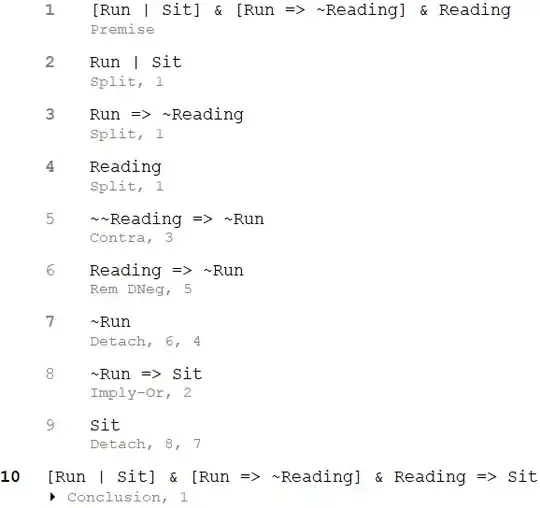So I have the statements:
A Football player is either running at the oval or sitting in the library. If he is running, then he is not reading a book. The player is reading a book. Therefore, he is sitting in the library.
This is what I got so far:
Running at the Oval => R
Sitting in the Library=>S
Reading a Book=> B
Football player is running on the oval or sitting in the Library.
R V S
If Football player is running on the oval, then he is not reading a book
R→¬B
Football player is reading a book therefore he is sitting in the library.
From what I gather using "therefore" implies it's a material implication so:
B→S
If this is the case can I safely use the following to describe the statements given:
(R→¬B) V (B→S)
